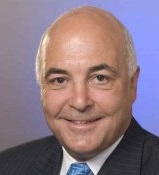As of this week, Bayer has an approval for a new, longer-lasting hemophilia med in Europe. But unlike in some disease areas, where drugmakers often encourage--and in the past have tried to force--patients to switch to long-acting products, in hemophilia, Bayer believes it's all about options.
Kovaltry, approved Monday by the European Commission to treat hemophilia A patients of all ages, will complement old stalwart Kogenate in Bayer's portfolio. The newcomer received a green light for prophylactic use in hemophiliacs two or three times per week.
But while fewer injections may be more convenient for some patients--Kogenate requires an injection every second or third day--Bayer isn't expecting "that the market will basically flip over," Hansjoerg Duerr, Bayer Hematology's head of global strategic marketing, told FiercePharmaMarketing in an interview at the J.P. Morgan Healthcare Conference in January.
 |
| Bayer's Hansjoerg Duerr |
"It's not a market where you see the kind of adoption rates you see in oncology," he said, noting that "if people are very satisfied with their current product, it's a step into the unknown."
Competitor Biogen ($BIIB), for one, has certainly seen that patient loyalty firsthand. In 2014, it rolled out a pair of long-lasting treatments and priced them on par with older, less convenient therapies, but the strategy didn't yield the massive exodus some expected.
"There are certainly customers that are trying these new products, but it hasn't been transformational in the market. It has been probably less than what the Street had expected initially," Duerr said.
And that's exactly why he thinks "we need to offer both products"--and add an even longer-lasting product to the mix, which Bayer plans to do down the line. A once-per-week treatment option is what Duerr expects it'll take "to really trigger more significant uptake."
"Our strategy is really a portfolio strategy," he said. "We really want to enable a full spectrum at the end of Factor 8 products to cover the needs of the patient and give the doctor different ways of managing the specific needs of a patient."
Bayer isn't the only company working on a portfolio strategy to give it a leg up in its signature disease area. GlaxoSmithKline ($GSK) has said it's working to provide a wide range of offerings in the respiratory field, while diabetes drugmakers--many of whom offer therapies ranging from insulins to combo treatments--have made it their go-to tactic for years.
- read Bayer's release
Special Report: The top 15 pharma companies by 2014 revenue - Bayer